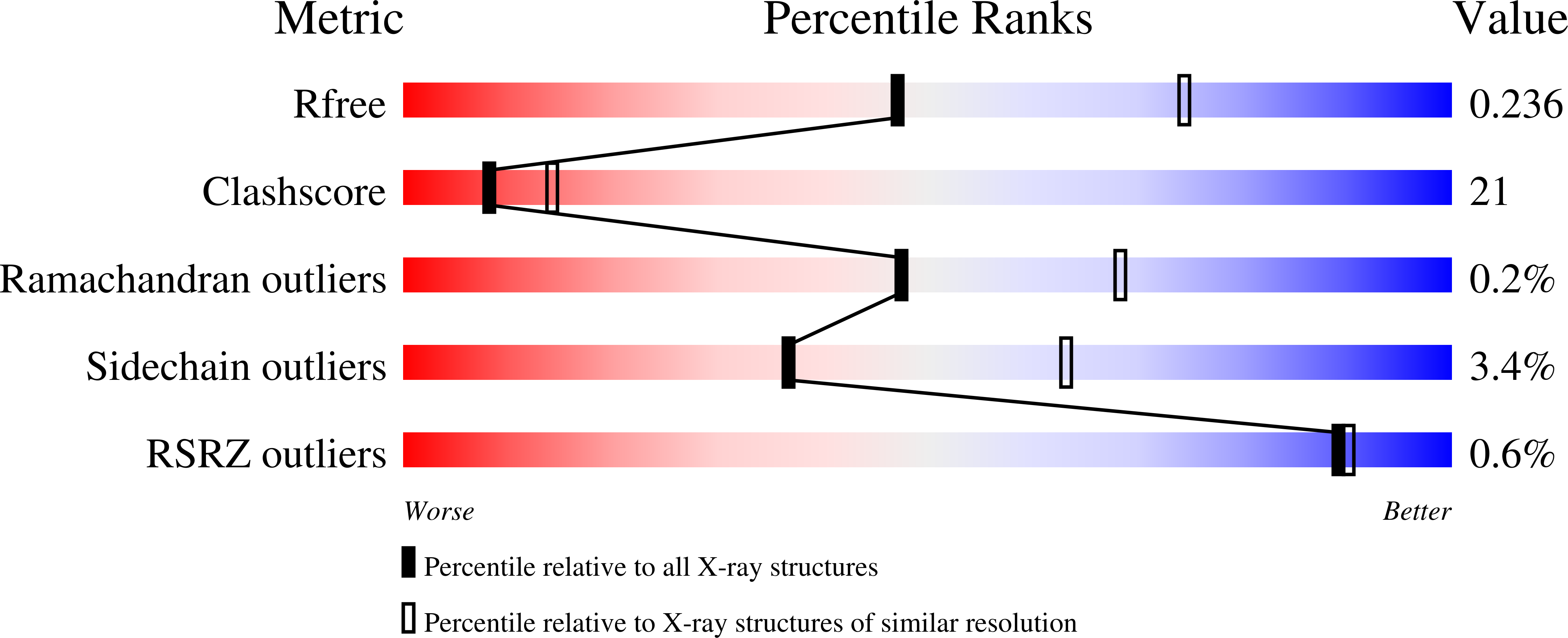Reducing the Peptidyl Features of Caspase-3 Inhibitors: A Structural Analysis.
Becker, J.W., Rotonda, J., Soisson, S.M., Aspiotis, R., Bayly, C., Francoeur, S., Gallant, M., Garcia-Calvo, M., Giroux, A., Grimm, E., Han, Y., McKay, D., Nicholson, D.W., Peterson, E., Renaud, J., Roy, S., Thornberry, N., Zamboni, R.(2004) J Med Chem 47: 2466-2474
- PubMed: 15115390
- DOI: https://doi.org/10.1021/jm0305523
- Primary Citation of Related Structures:
1RE1, 1RHJ, 1RHK, 1RHM, 1RHQ, 1RHR, 1RHU - PubMed Abstract:
Caspases are cysteine proteases that specifically cleave Asp-Xxx bonds. They are key agents in inflammation and apoptosis and are attractive targets for therapy against inflammation, neurodegeneration, ischemia, and cancer. Many caspase structures are known, but most involve either peptide or protein inhibitors, unattractive candidates for drug development. We present seven crystal structures of inhibited caspase-3 that illustrate several approaches to reducing the peptidyl characteristics of the inhibitors while maintaining their potency and selectivity. The inhibitors reduce the peptidyl nature of inhibitors while preserving binding potency by (1). exploiting a hydrophobic binding site C-terminal to the cleavage site, (2). replacing the negatively charged aspartyl residue at P4 with neutral groups, and (3). using a peptidomimetic 5,6,7-tricyclic system or a pyrazinone at P2-P3. In addition, we have found that two nicotinic acid aldehydes induce a significant conformational change in the S2 and S3 subsites of caspase-3, revealing an unexpected binding mode. These results advance the search for caspase-directed drugs by revealing how unacceptable molecular features can be removed without loss of potency.
Organizational Affiliation:
Departments of Medicinal Chemistry and Metabolic Disorders, Merck Research Laboratory, PO Box 2000, Rahway, New Jersey 07065, USA. joseph_becker@merck.com





















